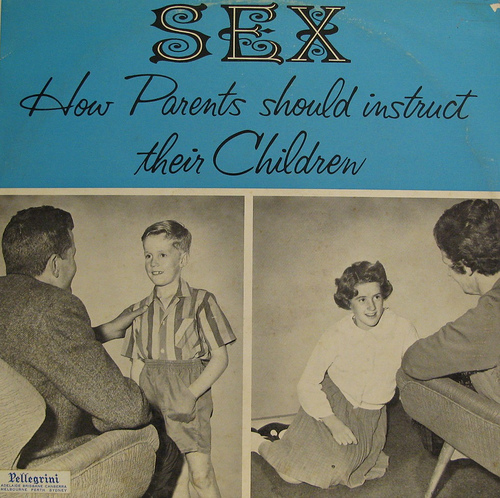I just wanted to make an observation. In the clinical sense, positive thinking is in fact a form of denial. I say “a form of”, since the difference is in who is in control. Denial is, to me the ignoring of certain aspects in your life in order to make life seem as if it is going the way you want. That is the same as positive thinking. The only real difference is — who is in control, and this is important.
I object to the whole dialectic regarding substance abuse, since it is difficult to discuss any use of illicit substances without talking about it as abuse, and about the user as an addict. I don’t use drugs or drink, yet in my lifetime I have twice been approached by people who say I am an alcoholic. These are presumably people with some authority on the matter. It seems that it is a difficult dialectic to avoid, whether you imbibe or not.
For any kind of real denial — and I do believe that such a thing exists (it’s just that it is so over-used) — the person is truly out of control. I know people who are out of control, and whom no one can control. These same people would act as if nothing is wrong, and would keep the game going causing all manner of stress and sadness for everyone around them.
But even they would readily open up and tell their story in their own voice to those who are receptive enough. Those who have not had their ears tainted or eyes blinded by the jargon and paradigms of what passes for “addiction psychology” would hear their voice in the most authentic way, uncorrupted by jargon, uncontaminated by self-help books. You find that many of them want to get some bearings; to get at the heart of their lack of self-control. But they must know their own thoughts; and hear their own voice. They can’t do it if someone is labelling, “treating”, or giving un-wanted advice. Their minds need to settle.
Addiction psychology doesn’t make life easy for the addict; it makes life easy for the psychologist. It gives them a nice battery of terminologies that simplify thought; a collection of predigested ideas and concepts that one can grab for to help ease the containment and control of the patient. Jargon has a tendency to reduce people to generalities, and only aids their dehumanization. Beyond all else, it saves the therapist all the bother of really getting to the heart of the matter, since addiction psychology already provides them with what they feel is an adequate surrogate “heart of the matter”. And that is good enough.
A person who is addicted is out of control. If they are out of control, then what they really need is more control over themselves and their impulses. The AA/Al-Anon programmes advise people to “let go” of all control. I am at a loss as to why they would think that would succeed. The failure of this programme is blamed on the subject who has “fallen off the wagon” again.
My intuition tells me that, because this goes back to the rise of industrialism and the Temperance movement, this could have been motivated by industrialists who would view the heavy drinkers as disgruntled with industrialism, and the counselling to “let go of control” was meant to temper the anger early workers felt at being displaced from their farms and earlier trades which the machines and assembly lines obsoleted. Because regaining control would work against the interest of the capitalists. Since then, that motivation is gone, but in its stead a whole industry is built around “kicking the habit”. And these interests must be respected above the needs of those who they purportedly serve. A better question is “why” do people drink? Interesting answers may be found there that would allow others to really be of help, I believe.
As for positive thinking, it involves an ability to ignore negative things, emphasize positive things, and to see the world as better than it really is. A positive thinker is dealing only with a partial reality. Thus they are happier than they really ought to be, and they work hard to maintain a mental environment where they can work toward goals that would be otherwise impossible had they been more “in touch with reality”. For its ability to result in greater achievement, a greater sense of satisfaction, a greater sense of self-control, and more rewarding relationships, it is difficult to say that positive thinking is a “bad thing”. Indeed, it is the very mentality we all need to survive and to lead rewarding lives.
Positive thinking is not the knee-jerk alteration of negativity that is characteristic of what we popularly know as “denial.” We all face personal problems of one kind or another. This can only be negative if we say to ourselves that there is no way out of these problems. Dealing with these problems result from optimism, in the sense that we would not deal with these problems if we felt that the effort was futile. Contrast this against dealing with our ongoing and challenging problems by pretending they don’t exist. The latter way of dealing with problems arises not out of positive thinking but out of a profound sense of hopelessness. It might work if the problem is not serious, or temporary. But if it lasts any length of time without being dealt with, it becomes crippling.
In those cases, the help we need to give these people should not be formulaic, like the 12-steps program; and the resolution will not be as easy as giving up a bad habit, although that is part of the goal. What causes a person to drink? Underneath that question lies the tangled emotions between family, work, and other pressures, wherein lies some kind of imbalance. Balance must be restored, and this is not an instant solution. It requires heroic self-honesty and an optimism that the problems the person faces are solveable, and that a brighter future lies waiting for those willing to put in the effort to tackle the problems one faces as they really are. I am not sure I see many other ways out.
Visits: 189
Like this:
Like Loading...


